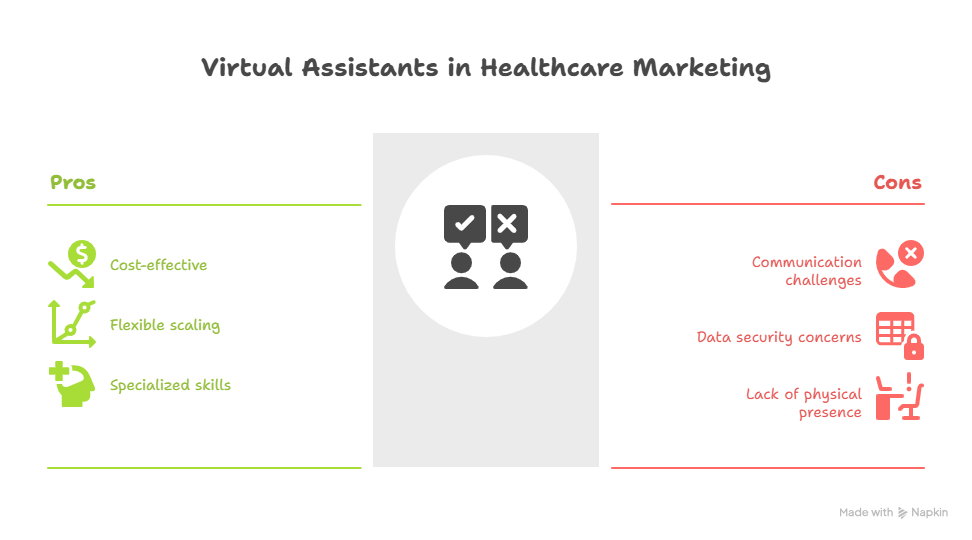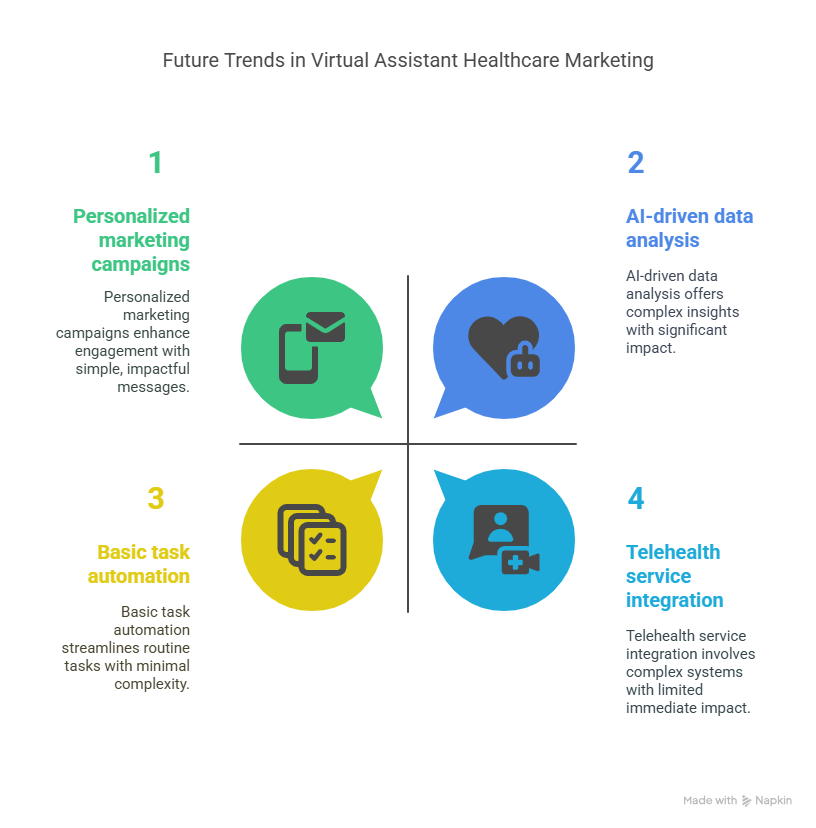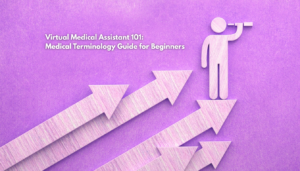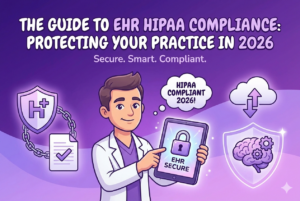Healthcare Marketing Made Easier with Virtual Assistants
12 Jun 2025 By: Mary Dellosa
Updated

Healthcare marketing becomes easier with virtual assistants because they take over time-consuming tasks like social media posting, content writing, email campaigns, and basic performance tracking, while keeping messaging consistent and patient-friendly. This saves money compared to hiring full-time staff and lets clinics scale marketing up or down as needed. For example, a VA can schedule a month of health-tip posts, respond to online reviews, and send appointment reminder emails, helping the practice stay visible and trusted without pulling staff away from patient care.
The Role of Virtual Assistants in Healthcare Marketing
Virtual assistants help in many ways with healthcare marketing. Many teams now rely on virtual medical assistant services to manage social media, run research, and make work easier. Their support helps teams grow and succeed. They write blog posts, plan content, and check how well campaigns are doing.
They answer online reviews, update websites, and watch trends to keep things fresh. VAs also help with emails, ads, and understanding what patients like. They handle online listings, make simple designs, and promote events like webinars. This gives teams more time to care for their patients.
Social Media Management
Social media is key in healthcare marketing. VAs run accounts, create posts, and chat with followers. This builds trust and a strong online presence. They also reply to comments, share useful health tips, and post real patient stories to make the practice feel more personal and caring.
They track post results and improve content to match what people want. VAs also follow trends to keep content fresh. They run ads on Facebook and Instagram to reach the right people. This brings better results and makes marketing more cost-effective. They test what works best, post at the right times, and keep the tone warm and friendly so people feel heard and cared for.
Content Creation
Content drives digital marketing. VAs help by writing blogs, newsletters, and guides. They research topics and prep them for sharing. They also edit and format content so it’s easy to read and matches the clinic’s voice. Running drafts through an AI detector reveals whether VAs are truly researching and synthesizing information or simply prompting ChatGPT to generate medical content that could contain dangerous inaccuracies. This helps keep messaging clear and consistent across all platforms.
They also boost SEO so clinics show up in search results. This brings more patient interest and helps keep them coming back. VAs can also turn content into videos or infographics. This reaches more people and shows expert care. They share this content on social media, websites, and emails to reach even more patients in different ways.
Email Marketing Campaigns
Email marketing still works well in healthcare. VAs build and run campaigns, split audiences, and track results to improve over time. They also keep email lists clean and updated, making sure messages reach the right people and avoid spam folders.
They write custom messages and set up automated sends. This keeps patients engaged and loyal. VAs also test what works best to get more opens and clicks. Their data-driven work helps clinics send the right message at the right time. They follow up on patient actions, such as appointment reminders or health tips, to keep the connection strong and helpful.
Benefits of Using Virtual Assistants in Healthcare Marketing

Adding virtual assistants to healthcare marketing brings big benefits. They cut costs, save time, and help teams work smarter. VAs can change how clinics market and grow.
They give small practices a helping hand without the stress of hiring full-time staff. With their support, things get done faster, nothing slips through the cracks, and teams can focus more on caring for patients. VAs also bring new ideas, follow the latest trends, and adjust quickly when plans change. This makes clinics more flexible, more human, and ready to grow with confidence.
Cost Efficiency
Full-time marketing teams cost a lot, especially for small clinics. VAs offer a cheaper option by handling tasks without full-time pay or extra costs. They also reduce the need for office space, equipment, and extra tools, which lowers overhead even more.
This saves money for care and upgrades while keeping marketing strong. Clinics also pay only when needed, making budgets easier to manage. This flexibility helps clinics invest in other areas, like staff training or new technology, while still growing their patient base through smart marketing.
Increased Flexibility
VAs offer flexible help that full-time staff can’t. Clinics can scale marketing up or down based on need without extra cost or delay. This is great during busy seasons or when launching new services, as clinics can get extra support without long-term commitments.
They adapt fast to new demands and work across time zones. This keeps tasks moving after hours and boosts response times and output. It also means important updates or campaigns can go live anytime, even when in-house teams are off, keeping the clinic active and responsive around the clock.
Access to Specialized Skills
Healthcare marketing needs special skills. VAs often know the rules and how to write strong messages that connect with patients. Many have experience working with clinics or health brands, so they understand the tone and care patients expect.
They bring ready-to-use skills, so no long training is needed. They also follow new trends and rules, keeping campaigns sharp and compliant. This helps build trust with patients and keeps the clinic’s reputation safe while reaching more people in a thoughtful and informed way.
Challenges and Considerations
Using VAs in healthcare marketing offers many perks, but also comes with challenges. Knowing these helps clinics plan better and avoid problems. Issues like time zone differences, clear communication, and data security must be managed well.
Setting clear roles, using secure tools, and offering regular feedback can help build a strong, smooth partnership with VAs. It’s also important to check their experience, provide brand guidelines, and keep them involved in team updates. With the right support, VAs become reliable partners who help clinics grow and stay connected with patients.
Data Security and Compliance
Data security is critical in healthcare. VAs may handle private info, so clinics must ensure they follow rules like HIPAA. This helps protect patient privacy and keeps the clinic compliant with the law.
Before hiring, check their background and training. Set clear rules and use secure tools to guard data. Regular checks boost safety and patient trust. Clinics should also provide ongoing training, limit data access to only what’s needed, and use encrypted platforms for sharing files and messages. Taking these steps shows patients that their information is handled with care and respect.
Communication and Collaboration
Clear communication matters when working with VAs. Since they work from home, clinics need easy ways to stay connected. Everyone should know who to talk to and how to share updates. Simple steps and clear deadlines help avoid mix-ups.
Use tools and regular check-ins to keep things on track. Open chats let VAs share ideas and feel part of the team. A little training goes a long way. Shared calendars, team messages, and clear task lists make things easier. A warm welcome helps VAs learn fast and feel included. When VAs feel trusted, they give their best and help the team grow.
Quality Control
Quality matters in healthcare marketing. VAs may have different skills, so clinics must review their work closely. Taking time to check their work helps catch mistakes early and keeps the brand message clear.
Set up checks, give feedback, and offer training often. A shared guide of best work helps VAs learn the brand. Ongoing learning keeps them sharp and up to date. Clinics can also hold quick review calls, share examples of great content, and celebrate small wins to keep motivation high. This builds trust and helps VAs feel proud of the work they do.
The Future of Virtual Assistants in Healthcare Marketing

As tech grows, more clinics will use VAs in marketing. New tools and trends will shape how VAs support healthcare marketing efforts. AI, automation, and better software will make their work faster and more accurate.
VAs will take on more complex tasks like managing data, running smart campaigns, and tracking patient behavior. Clinics will rely on VAs not just for help, but for insights and ideas. This shift will make VAs a key part of the marketing team, not just a helping hand.
AI and Automation
AI and automation are changing marketing fast. VAs use AI to study data, spot trends, and handle simple tasks. They can also schedule posts, send emails, and update content with little effort.
This helps clinics focus on big goals. Chatbots answer patient questions anytime, boosting service and saving staff time. VAs get smarter as AI grows. They’ll soon help with more advanced tasks like predicting patient needs or tracking results in real time, making marketing even more effective and patient-focused.
Enhanced Personalization
Personalized marketing is key in healthcare. VAs use data to create messages that fit each patient’s needs and habits. They can group patients by age, location, or health interests to make messages more meaningful.
This boosts engagement and care results. VAs adjust campaigns as patient needs change. This keeps content timely and relevant all year long. They can also send reminders, helpful tips, or seasonal health alerts that show patients their clinic cares and understands them.
Integration with Telehealth Services
Telehealth has changed care delivery. VAs help market these services to people who prefer online visits. They highlight the ease, safety, and convenience of virtual care in simple ways that connect with patients.
They run campaigns to reach more patients, especially in remote areas. VAs also handle follow-ups, keeping patients informed and loyal to virtual care. They send reminders, share care tips after visits, and answer common questions, helping patients feel supported even from a distance.
Trending Now
Healthcare marketing now plays a big role in improving care and keeping patients happy. Unlike other industries, healthcare needs its own style of marketing. Patients aren’t just getting care, they’re helping shape it. Today, they want services that fit their needs and lifestyle. Marketers must listen, understand what patients value, and create services that are easy to use and feel personal. Patient satisfaction matters more than ever, and that means clear communication, trust, and care that feels made for them.
Digital tools help healthcare providers connect with people faster and better. Patients look online for info, doctors, and reviews. That’s why strong websites, helpful content, and mobile-friendly tools are key. Good marketing now means sharing useful content, tracking results, and adjusting when needed. It helps providers stand out, reach more people, and build strong, lasting relationships. In the end, smart marketing makes care better and helps patients feel seen, heard, and cared for.
Conclusion
Virtual assistants are reshaping healthcare marketing. They handle social media, write content, and manage emails to boost patient engagement and reach.
Though challenges exist, the rewards are greater. As tech grows, VAs will help drive smarter, patient-focused marketing. They’re key to future success in care and growth.
Ready to take your healthcare marketing to the next level? With HelpSquad Health, you can access a dedicated team of virtual assistants and 24/7 customer service professionals who specialize in the healthcare industry. Our bilingual agents are equipped to handle all your marketing needs, from social media management to patient engagement, starting at just $8.50 per hour. Don’t miss the opportunity to enhance your patient care and organizational success. Start your trial today and experience the difference with HelpSquad Health!


